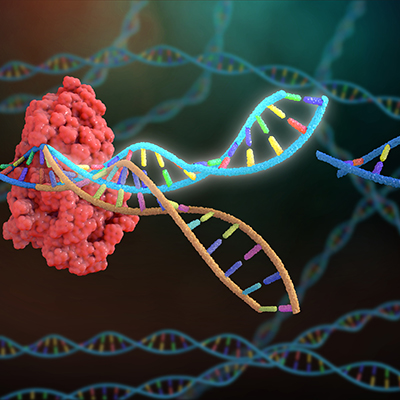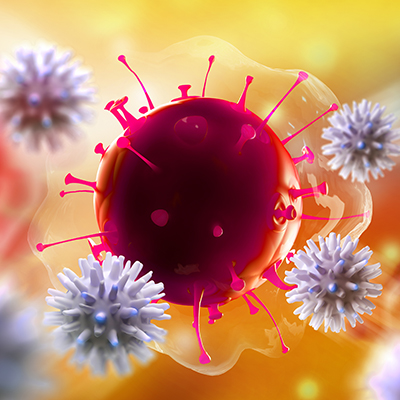January 4, 2023 -- Harvard Stem Cell Institute scientists are harnessing a new method of turning cancer cells into potent, anti-cancer agents. Their new cell therapy approach to eliminating established tumors also trains the immune system to prevent cancer from recurring, providing long-term immunity. The NIH-funded study, published January 4 in Science Translational Medicine, showed promising results when the approach was tested on mice with glioblastoma, a deadly brain cancer.
Cancer vaccines that use inactivated tumor cells are an active area of research for many labs. The researchers utilized a different approach, repurposing living tumor cells which were known to possess an unusual feature. Somewhat like homing devices, living tumor cells will travel long distances across the brain to return to the site of their fellow tumor cells. Taking advantage of this unique property, the team used the gene editing tool CRISPR-Cas9 to engineer living tumor cells and repurpose them to release tumor cell-killing agents. In addition, they designed the engineered tumor cells to express factors that would make them easy for the immune system to spot, tag, and "remember," priming the immune system for a long-term antitumor response.
The team tested their repurposed CRISPR-enhanced, reverse-engineered therapeutic tumor cells (ThTC) in different mouse strains -- including one that carried bone marrow, liver, and thymus cells derived from humans, mimicking the human immune microenvironment. The team also built a two-layered safety switch into the cancer cells which, upon activation, eradicates ThTCs if need be. This dual-action cell therapy was demonstrated to be safe, applicable, and efficacious in the mice. The team chose this mouse model in order to facilitate the translation of their results to human patients, potentially providing a roadmap to therapy. They believe that this therapeutic strategy may be applicable to a wider range of solid tumors and that further investigations of its applications are warranted.
"Our team has pursued a simple idea: to take cancer cells and transform them into cancer killers and vaccines," said Harvard professor and corresponding author Khalid Shah, PhD, in a statement. "Using gene engineering, we are repurposing cancer cells to develop a therapeutic that kills tumor cells and stimulates the immune system to both destroy primary tumors and prevent cancer."
Disclosures: Khalid Shah owns equity in and is a member of the board of directors of AMASA Therapeutics, a company developing stem cell-based cancer therapies.
Copyright © 2023 scienceboard.net














